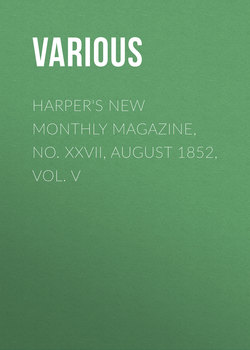Читать книгу Harper's New Monthly Magazine, No. XXVII, August 1852, Vol. V - Various - Страница 21
MEMOIRS OF THE HOLY LAND
RULES OF THE ORDER
ОглавлениеThe claim of the Carmelites to have received their first written charter from St. Basil is not very well sustained, as the earliest authentic evidence of any written rule for the government of the institution relates to one given them by the patriarch of Jerusalem in 1205, about thirty years after the time when the monastery was founded, according to John Phocas's narrative. This "rule," or charter as it would be called at the present day, consisted of sixteen articles, and some particulars of it may be interesting to the reader as illustrating the nature of this species of document. The first article treats of the election of the prior of the monastery, and of the obedience which was to be rendered to him by the other monks. The second treats of the cells in which the brethren were to live, and prescribes that they should be separated from each other in such a way that there could be no intercourse or communication between the respective inmates. The third contains regulations in respect to the cell of the prior, its situation and relation to the other cells. The fifth requires the monks to remain constantly each within his own cell except when called away by regularly prescribed duties elsewhere, and to devote himself in his retirement to the work of prayer and meditation. The sixth prescribes certain regulations in respect to divine service. By the seventh the monks are forbidden to possess any private property of any kind. The eighth requires the brethren of the monastery to build an oratory or place of prayer in some central place, near the cells, and to assemble there every morning to hear mass. The ninth prescribes rules for the internal discipline of the institution. The tenth enjoins certain fast days. The eleventh forbids the use of flesh for food entirely. The twelfth exhorts the monks to clothe themselves with certain spiritual armor which it describes. The thirteenth enjoins upon them to labor with their hands, in cultivating the fruits of the earth in their little gardens. The fourteenth enjoins absolute silence upon them, from vespers until the break of day on the following morning. The fifteenth inculcates upon them the duty of humility and of devoting themselves to prayer; and the sixteenth closes the series by exhorting them to be always obedient and submissive to the prior.
